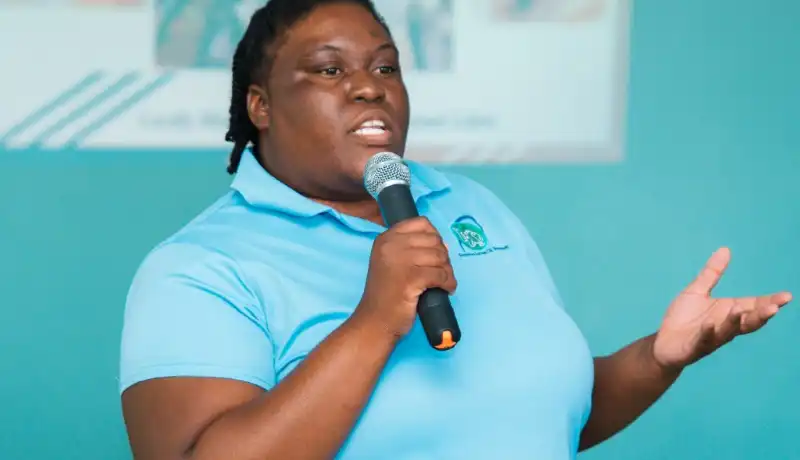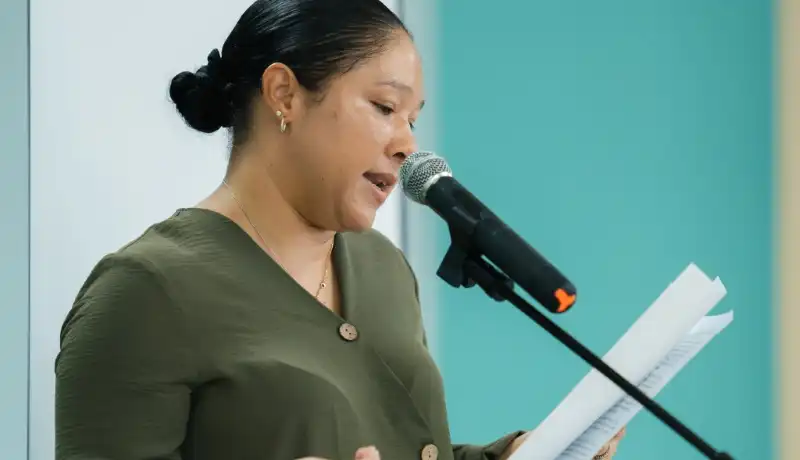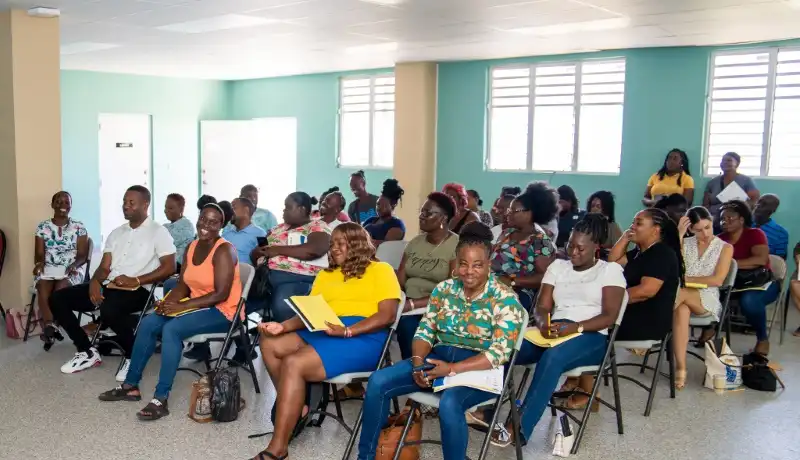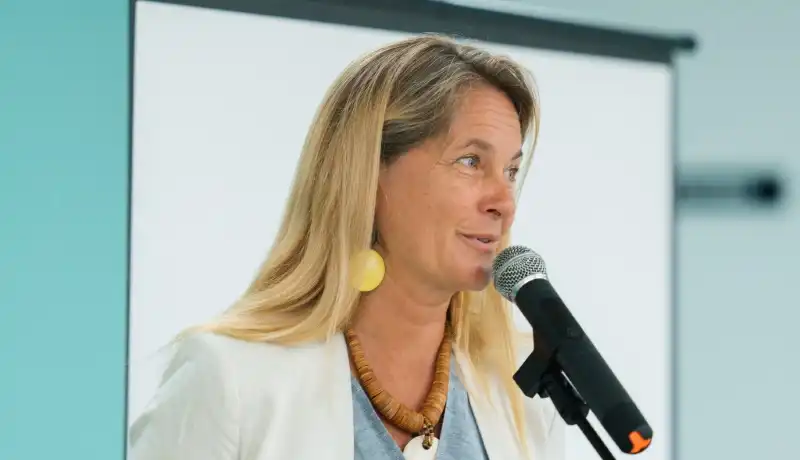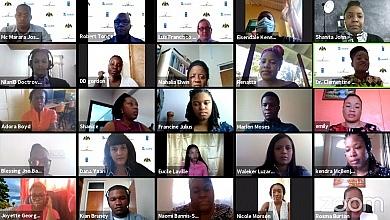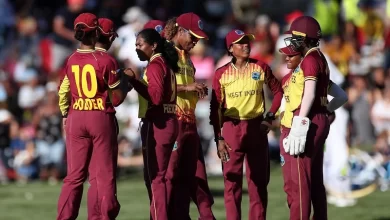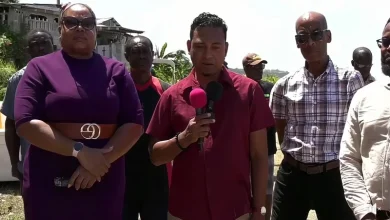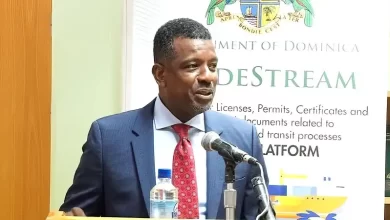West Indian White Bait Women Fishers, also known as Titiwi Fishers, will benefit from a Knowledge and Experience Exchange with Saint Vincent and the Grenadines’ women fishers being held on March 15 – 17 at the Layou Resource Center. The exchange is made possible by the Government of Dominica in collaboration with the Government of Saint Vincent and the Grenadines and the United Nations Development Programme (UNDP) Barbados and the Eastern Caribbean’s project entitled, Enabling Gender-Responsive Disaster Recovery, Climate and Environmental Resilience in the Caribbean (EnGenDER) Project, which is funded by the Government of Canada and the United Kingdom. With gender at the forefront, the aim of this South-South Cooperation is to further optimize the economic contributions made by the fishery communities, to assist with making the fishery community climate resilient and to ensure these efforts are executed with a focus on the inclusion of vulnerable groups.
Since 2020, the EnGenDER project has been implementing initiatives in nine Caribbean countries to integrate gender equality and human-rights-based approaches to strengthen disaster risk management and build resilience. Laura Hildebrandt, Interim Head of the Dominica Project Office, (UNDP), noted that in order to elevate Dominica’s agriculture and fisheries sector, it is critical that gender-responsive, skills-based training and livelihoods programmes are implemented. Speaking to the Knowledge and Experience Exchange, she stated, “This reciprocal exchange brings together representatives from Dominica and Saint Vincent and the Grenadines and will facilitate discussions on the benefits in curbing overfishing and in using marine resources more sustainably to support the advancement of fisheries management.” She further highlighted the expected benefits of the initiative, “It is hoped that this exchange will build the confidence, capacity, and motivation of the participating women. We hope that at the end of the exchange, the fisherfolk will have an increased knowledge of their trade, which will lead to action and positive results for fisheries management and conservation at the site level. Moreover, this learning exchange can lead to adoption of successful approaches at multiple sites and may even catalyse change at the institutional level.”
The three-day Knowledge and Experience Exchange will host eighteen participants from the Layou community in Dominica and eleven participants from Saint Vincent and the Grenadines. It will develop a network between fishers of Dominica and Saint Vincent and the Grenadines, encouraging regional collaboration and sustainable support. The Exchange will allow participants to share best practices related to harvesting, processing, storing, and culinary preparation of the West Indian White Bait, also known as Titiwi. Participants will also benefit from three developmental sessions: 1) Business Management for Small Business Owners by Mr. Kelvin Toussaint; Individual Contractor, 2) Group Dynamics and 3) Business Objectives by Mr. Norman Norris; a Fisheries and Livelihood Specialist and Former Fisheries Officer.
Kaywana Thomas, the Coordinator for Research and Programme Development for the Bureau of Gender Affairs welcomed the Saint Vincent and the Grenadines Fishers to Dominica and noted the intrinsic similarities of the two groups, “We are one people, facing the same challenges with the goal – to build our livelihoods, to address regional Food and Nutrition Security, and to foster economic growth and development towards the achievement of the Sustainable Development Goals 2030 agenda.” She also noted that climate crises and disasters are escalating and there was a need to prepare. During her opening remarks, she stated “Our ability to cope with the next disaster, depends on actively equipping community persons with resources such as best practices in the fisheries sector. This training therefore seeks to enhance opportunities and networking while building resiliency within the Titiwi sector. More specifically, we encourage this regional exchange to empower Titiwi fishers with the knowledge and skills to make the Titiwi value chain more sustainable and a more attractive market and livelihood.”
Speaking on the Tri Tri fishing community, Chief Fisheries Officer from the Ministry of Agriculture, Forestry, Fisheries, Transformation, Industry and Labour, Mrs. Jenifer Cruickshank-Howard, noted in a pre-event interview that, “The Tri Tri fishery although generally practiced and popular among the Vincentian public is still one of the most underdeveloped fishery in Saint Vincent and the Grenadines. Currently there are over two hundred (200) registered fishers engaged in this fishery of which sixty-two percent (62%) are women.” She also commented on the evident increasing risk on coastal communities and stated that, “The increasing risk, from coastal hazards affiliated with climate change, threatens livelihoods, food security, economic development and the well-being of coastal environments. The Tri Tri fishery not only in Saint Vincent and the Grenadines, but also the entire Caribbean is highly vulnerable to this existential issue because of its dependence on the health of river mouths at the coast.”
As climate change effects become more prevalent in the region, it is vital that developmental efforts continue to reinforce the need for regional resilience, and bolstering livelihoods for traditionally vulnerable groups. UNDP Barbados and the Eastern Caribbean, in partnership with governments and stakeholders, remains dedicated to the advancement of inclusive and sustainable development throughout the region. This intervention is part of the work of UNDP Barbados and the Eastern Caribbean in its commitment to building resilient communities that can withstand shocks and crises while reducing gender vulnerabilities.
This article is copyright © 2023 DOM767





